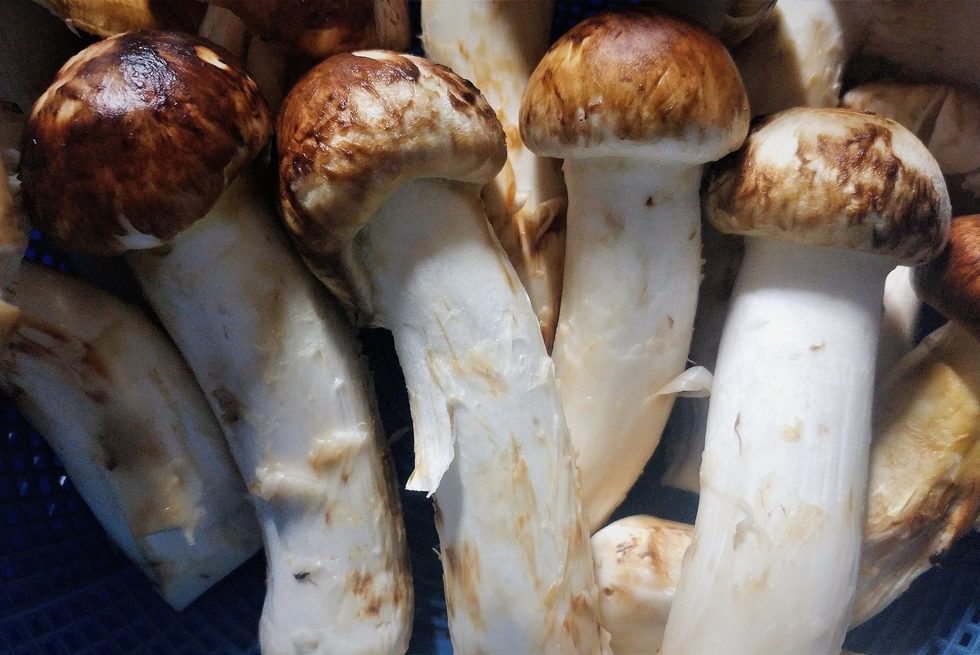
Anna Lowenhaupt Tsing’s beautifully written ethnography The Mushroom at the End of the World evokes the forms of life that emerge in the ruins and fissures—the latent commons—of contemporary capitalism. She focuses the reader’s attention on collaboration in sites on the margins of the globalized world. In doing so, she tells stories of science and history, gifts and commodities, as well as freedoms and futures after progress. She is concerned with the mythmaking and haunting that occurs in surprising ways among those engaged in forms of informal, precarious labor. She describes the way these forms of life create new forms of living, new entanglements, and new temporalities.
One of the most exciting aspects of Tsing’s work is how she artfully composes the narrative of the book, weaving concepts through short chapters and sections in a way that highlights how knowledge is being assembled in our contemporary world. As the jury noted in announcing Tsing’s book as the winner of the 2016 Gregory Bateson Prize, The Mushroom at the End of the World is “an open-ended polyphonic assemblage that performs in writing the very concepts it generates.”
It was these concepts that captured the attention of the contributing editors at Cultural Anthropology who participated in this second annual Bateson Book Forum. Camille Frazier takes up Tsing’s framing of pericapitalist sites and the forms of work they foster by thinking about them in relationship to her own research in the Bengaluru countryside. Katherine Sacco considers the way Tsing’s conceptualization of latent commons might operate differently in urban environments with different nonhuman actors. Ned Dostaler reflects on the way Tsing’s framing of a future without progress might be articulated with forms of hope. David Ayala-Alfonso describes the way Tsing’s theory-making emerges from the collaborative style of both her thinking and her objects of analysis. Darren Byler concludes the forum by discussing how the forms of illiberal freedom that Tsing finds among mushroom pickers might be aligned with forms of freedom found in precarious circumstances elsewhere. In the end, as Tsing notes in her response to the essays in this forum, an open question remains after reading The Mushroom at the End of the World. We are left wondering what a progressive politics looks like after progress. How do we build a politics of justice in the awkward situation we find ourselves in at the end of the world?
The contributors to the 2017 Bateson Book Forum are:
Camille Frazier is a PhD candidate in the Department of Anthropology at the University of California, Los Angeles.
Katherine Sacco is a graduate student in the Department of Anthropology at the University of California, Irvine.
Ned Dostaler is a PhD candidate in the Department of Anthropology at the University of California, Berkeley.
David Ayala-Alfonso is an artist, curator, and researcher working between Chicago and Bogotá.
Darren Byler is a PhD candidate in the Department of Anthropology at the University of Washington and Program Coordinator for the Contributing Editors Program at Cultural Anthropology.
Anna Lowenhaupt Tsing is the winner of the 2016 Gregory Bateson Prize, Professor in the Department of Anthropology at the University of California, Santa Cruz, and Niels Bohr Professor at Aarhus University.
Posts in This Series

Work and Nonwork in Pericapitalist Sites
Reading The Mushroom at the End of the World is both pacifying and energizing in a moment that seems increasingly like The End. The book asks its readers to cul... More

Latent Commons in the City
Prized mushroom, precarious source of livelihood, paragon of interspecies ecologies—these are only a few of the lives of matsutake that Anna Tsing unearths in T... More

On Hope and Indeterminacy
“How,” Anna Tsing asks, “might capitalism look without assuming progress?” Narratives of progress, she reminds us, cannot be the grounds for thought (or critiqu... More

The World is Ending: What Now?
Anna Lowenhaupt Tsing’s book The Mushroom at the End of the World caught my attention as it addressed a series of questions that have driven my work and researc... More

Salvage Freedom
It is hard to know what to start thinking with in a book as rich with ideas as Anna Lowenhaupt Tsing’s The Mushroom at the End of the World. What struck me the ... More

Is There a Progressive Politics After Progress?
I graduated from high school into antiracist and feminist movements, with the inspiration of social-justice advocates standing ahead of me. Despite the difficul... More